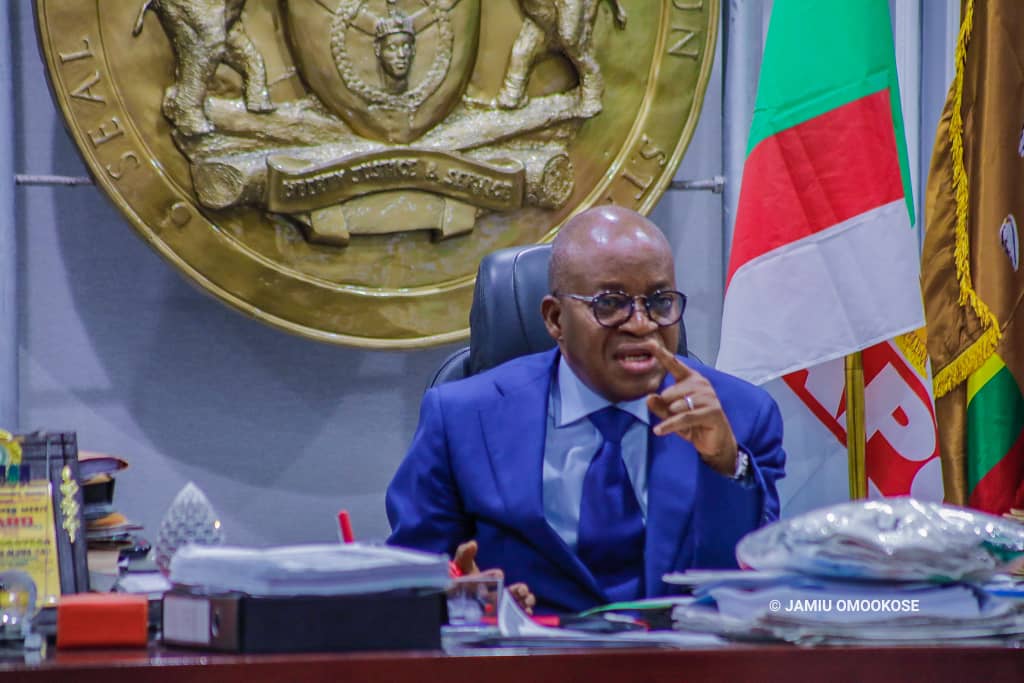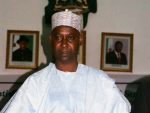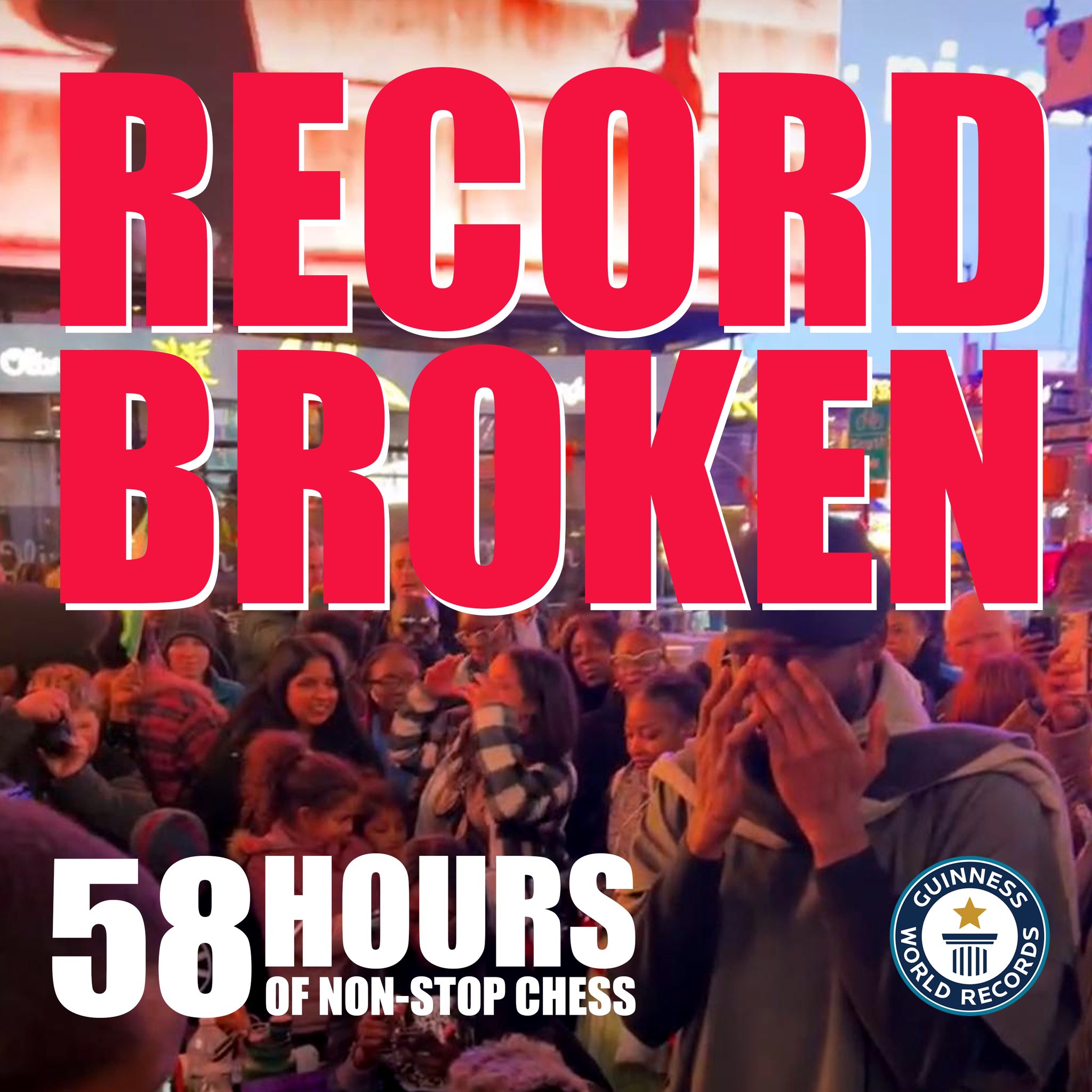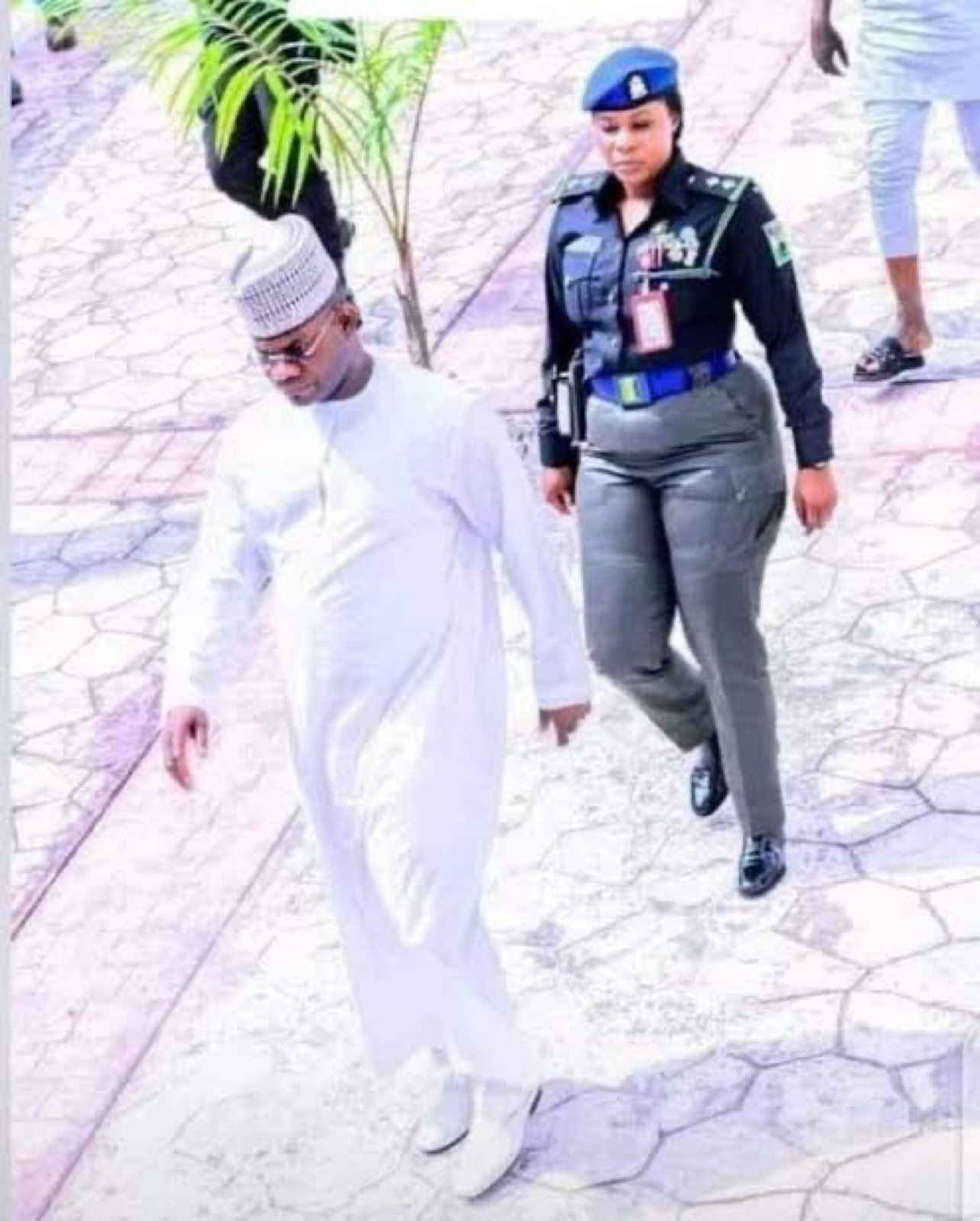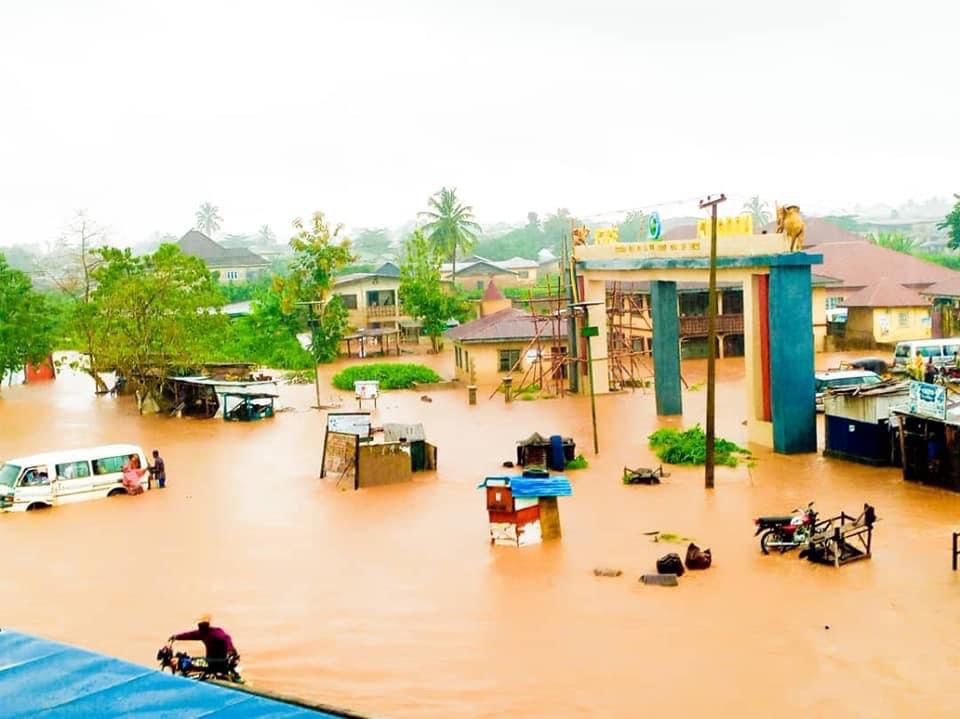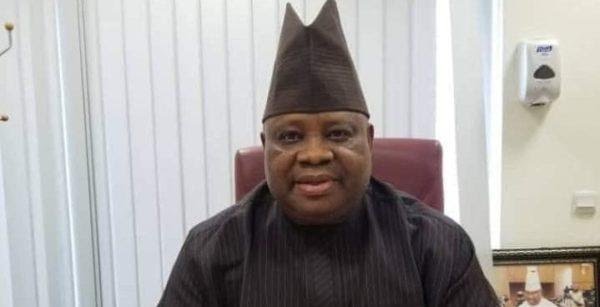By Olowogboyega Oyebade
Are you aware that the Governor of the State of Osun, Mr Adegboyega Oyetola has approved the recruitment of additional 2,500 teachers? Do you know that this is part of the Economic Recovery and Growth Plan (ERGP) that every State in Nigeria and the Federal Government must pursue? Are you aware that interested applicants are to obtain employment forms and are expected to participate in a test and interviews to determine their eligibility? Do you know that teachers of the new day are not just to be excellent in their courses of study but are expected to be fairly groomed in things going on around them constituting the environment of their job? Do you know that this is the dictate of the new curriculum? As new teachers are expected to pass Qualifying Test, do you know that new developments in our country and the world impose a new duty on us all to pass the test of Mo Ibrahim? Do you know that teachers, civil servants and political office holders must aspire to pass this test? What is the test of Mo Ibrahim? You care? Enjoy this time-out.
Are you aware of the new professional league called Basketball Africa League, a partnership between the International Basketball Federation and the NBA? Do you know that it is set to feature 12 African club teams to kick-start the first season of the newcompetition that the NBA has helped to create on 13 March,2020 in Dakar, Senegal? Do you know that it has been postponed indefinitely for fear of COVID19? Can you imagine that Iran, without any external prompting, has temporarily released more than 54,000 prisoners in an effort to combat the spread of the COVID 19 in crowded jails? Do you know that the World Bank Group (WBG) plays a key role in the global effort to end extreme poverty and boost shared prosperity? Are you aware that the primary opportunity to bolster awareness and participation in key issues is through the Spring and Annual Meetings? Do you know that the Annual Meetings traditionally are held in Washington, D.C. two years out of three and, in order to reflect the international character of the two institutions, every third year in a different member country? Are you aware that Kristalina Georgieva, Managing Director of the International Monetary Fund (IMF), and David Malpass, President of the World Bank Group, announced last week Tuesday that the format of 2020 Spring Meetings will be held virtually this year, to ensure the health and safety of participants and staff because of the health concerns around COVID-19? Do you know that last week, England played a fan-free Nation’s League game for fear of COVID 19? Are you aware that the 20th National Sports Festival is billed to begin on 20thMarch, 2020 in Samuel Ogbemudia Stadium, Benin, Edo State and no statement has been made in relation to the scare of COVID 19? Do you know that the effects of COVID 19 seem to be more devastating than nuclear bombs? The statement of Mrs. Kristalina Georgieva, Managing Director of IMF, and Mr. David Malpass, President of the World Bank Group, on 3rdMarch, 2020, cuts in:
“Like everyone else around the world, we have been deeply concerned by the evolving situation of the Coronavirus and the human tragedy surrounding it…. Our goal is to serve our membership effectively while ensuring the health and safety of Spring Meetings participants and staff. We … will leverage our IT-related and virtual connection capabilities to the fullest to hold our essential policy consultations with the membership. … With this adapted format, we are confident that our member countries will be able to effectively engage on pressing global economic issues at these Spring Meetings.”
Are you aware that on 5th March, 2020, Mo Ibrahim Foundation announced no winner of 2019 Ibrahim Prize for Achievement in African Leadership? Are you aware that in 2009, 2010, 2012, 2013, , 2015, 2016, 2018 and 2019, the Prize Committee, after in-depth review, did not select a winner? Do you know that the Prize recognises exceptional leadership in Africa, celebrating role models for the continent? Do you know that it is awarded to individuals who have, through the outstanding governance of their country, brought peace, stability and prosperity to their people? Who is this Mo Ibrahim and what makes his Prize symbolic? You care? Come along, please. Mo Ibrahim cuts in:
“Africa is facing some of the toughest challenges in the world – ranging from those connected to population growth, and economic development, to environmental impact. We need leaders who can govern democratically and translate these challenges into opportunities.” .
Are you aware that Mohammed “Mo” Ibrahim is a Sudanese-British billionaire businessman born on 3 May 1946in northern Sudan, of Nubian descent, the second of five children? Are you aware that Ibrahim earned a bachelor’s degree from Alexandria University in Egypt in Electrical Engineering and returned to Sudan and started working for Sudan Telecom? Do you know that he moved to England and earned a Master’s Degree from the University of Bradford in Electronics and Electrical Engineering, and a PhD from the University of Birmingham in Mobile Communications? Do you know that he worked for several telecommunications companies in the United Kingdom? Are you aware that in 1989 he founded MSI, a consultancy and software company with 800 employees, whom Mo Ibrahim alloted 30% of the stock as a form of bonus, to motivate them to excel? Do you know that in 1998, MSI Investmentswas renamed Celtel, as a mobile phone operator in Africa? Can you believe that Celtel maintained strong and notable presence in 14 African countries as at 2004 with over 24 million mobile phone subscribers? Are you aware that Celtel was sold in 2004 to Kuwait-based Mobile Telecom Company and its name was changed to Zain? Do you know that the deal was concluded in 2005 for $3.4 billion? As a patriot of Africa, do you know that he used part of the proceeds to set up the Mo Ibrahim Foundation to encourage better governance in Africa, as well as creating the Mo Ibrahim Index, to evaluate nations’ performance?
Do you know that in 2006 Ibrahim inaugurated the Mo Ibrahim Foundation in London and in 2007, the Foundation inaugurated the Mo Ibrahim Prize for Achievement in African Leadership? Are you aware that the winner of the Prize is chosen by an independent Prize Committee, chaired by SalimAhmed Salim, who took over from former chair Kofi Annan in 2011 and other members of the Committee include: Festus Mogae, MarttiAhtisaari, Mohamed El Baradei, Mary Robinson, Aïcha Bah Diallo, Horst Köhler and Graça Machel, the former wife of SamoraMachel, the first President of Mozambique and Nelson Mandela, the first President of non-racial South Africa, (and is on the cover of this month’s (March,) Forbes Africa as the magazine prepares to announce its list of the continent’s 50 most powerful women in 2020)?
Do you know that the Prize Committee awards a $5 million initial payment, and a $200,000 annual payment for life to African Heads of State who deliver security, health, education and economic development to their constituents and democratically transfer power to their successors? Do you know that with a $5 million initial payment, plus $200,000 a year for life, the Prize is believed to be the world’s largest, exceeding the $1.3m Nobel Peace Prize? Do you know that the purpose of the Prize in Africa is to ensure that Africa continues to benefit from the experience and expertise of exceptional leaders when they leave national office, by enabling them to continue in other public roles on the continent? Do you know that the first recipient was the former President JoaquimChissano of Mozambique in 2007 for “his role in leading Mozambique from conflict to peace and democracy” and Nelson Mandela was also made an Honorary Laureate in recognition of his “extraordinary leadership qualities and achievements”? Are you aware that in 2008 Festus Mogae, former leader of Botswana, won the Ibrahim Prize for President Mogae’soutstanding leadership to ensure Botswana’s continued stability and prosperity in the face of an HIV/AIDS pandemic, which threatened the future of that country and people? Do you know that in 2009 and 2010, the Prize Committee did not select a winner? Are you aware that in 2011 the Prize was awarded to Pedro Pires, former President of Cape Verde? Do you know that President Hifikepunye Pohamba won the 2014 Ibrahim Prize for Achievement in African Leadership and Ellen Johnson Sirleaf won 2017 Ibrahim Prize? The voice of Mo Ibrahim cuts in:
“The purpose of the Foundation is to challenge those in Africa and the world to debate what constitutes excellence in leadership. The standards set for the prize are high, and the number of eligible candidates small. So it is always likely that there will be years when no prize is awarded.”
Do you know that the Foundation publishes the Ibrahim Index of African Governance, ranking the performance of all 54 African countries as an annually published composite index that provides a statistical measure of governance performance using governance framework having four dimensions which include: Safety and Rule of Law, Participation and Human Rights, Sustainable Economic Opportunity and Human Development? Do you know that the Rule of Law sub-category includes five indicators measuring Judicial Process, Judicial Independence, Sanctions, Transfers of Power and Property Rights? Do you know that the Accountability sub-category includes seven indicators measuring Accountability, Transparency and Corruption in the Public Sector, Accountability, Transparency and Corruption in the Rural Sector, Corruption and Bureaucracy, Accountability of Public Officials, Corruption in Government and Public Officials, Prosecution of Abuse of Office and Diversion of Public Funds? Are you aware that the Personal Safety sub-category includes six indicators measuring Domestic Political Persecution, Social Unrest, Safety of the Person, Reliability of Police Services, Violent Crime and Human Trafficking? Do you know that the National Security sub-category includes five indicators measuring Cross Border Tensions, Government Involvement in Armed Conflict, Domestic Armed Conflict, Political Refugees and Internally Displaced People? .
Do you know that Participation and Human Rights category examines 19 indicators in the Participation and Human Rights category divided into three sub-categories which include: Participation, Rights, and Gender? Do you know that the Participation sub-category includes five indicators measuring Free and Fair Executive Elections, Free and Fair Elections, Political Participation, Electoral Self-Determination and Effective Power to Govern? Do you know that Rights sub-category includes seven indicators measuring Core International Human Rights Conventions, Human Rights, Political Rights, Workers’ Rights, Freedom of Expression, Freedom of Association and Assembly and Civil Liberties? Are you aware that the Gender sub-category includes seven indicators measuring Gender Equality, Gender Balance in Primary and Secondary Education, Women’s Participation in the Labour Force, Equal Representation in Rural Areas, Women in Parliament, Women’s Rights and Legislation on Violence against Women?
Do you know that Sustainable Economic Opportunity category examines 30 indicators divided into four sub-categories which include: Public Management, Business Environment, Infrastructure and Rural Sector? Do you know that the Public Management sub-category includes 11 indicators measuring Statistical Capacity, Public Administration, Inflation, Diversification, Reserves, Budget Management, Ratio of Total Revenue to Total Expenditure, Fiscal Policy, Ratio of External Debt Services to Exports, Revenue Collection and Soundness of banks? Are you aware that the Business Environment sub-category includes six indicators measuring Competition Environment, Investment Climate, Investment Climate for Rural Businesses, Bureaucracy and Red Tape, and Customs Procedures? Do you know that the Infrastructure sub-category includes six indicators measuring Electricity, Roads, Rail Network, Air Transport, Telephone and IT Infrastructure and Digital Connectivity? Do you know that the Rural Sector sub-category includes seven indicators measuring Public Resources for Rural Development and Land and Water for Low-Income Rural Populations, Agricultural Research and Extension Services, Agricultural Input and Produce Markets, Policy and Legal Framework for Rural Organisations, Dialogue between Government and Rural Organisations and Agricultural Policy Costs?
Do you know that the human development category examines 22 indicators divided into three sub-categories which include: Welfare, Health and Education? Do you know that the Welfare sub-category includes nine indicators measuring the Welfare Regime, Social Protection and Labour, Social Exclusion, Welfare Services (Health and Education), Equity of Public Resource Use, Access to Water, Access to Sanitation, Environmental Policy and Environmental Sustainability? Do you know that Education sub-category includes seven indicators measuring the Educational Provision and Quality, Education System Quality, the Ratio of Pupils to Teachers in Primary School, Primary School Completion, Progression to Secondary School, Tertiary Enrolment and Literacy? Do you know that Health sub-category includes six indicators measuring Maternal Mortality, Child Mortality, Immunization (Measles &DPT), Anti-retroviral Treatment Provision, Disease (Malaria & TB) and Undernourishment? Do you know that this is the new curriculum under which virtual tests are conducted for all our leaders? Do you know that the Prize Committee is yet to name any winner since 2018 till now in 2020? Can you see that this tool is designed to be a tool for citizens, governments, institutions and business to assess the delivery of public goods and services, and policy outcomes, across Africa in the march towards a new civilization? Do you know that we must pass this test of Mo Ibrahim if truly we want our country to be out of the woods? Why? Enjoy a time-out.
Are you aware of the Nigeria’s Economic Recovery and Growth Plan (ERGP) for 2017-2020 launched in April 2017? Can you recall that in 2016 Nigeria was not economically viable and it recorded a negative growth of -1.5 % in GDP? Do you know that in order to arrest the slide, the Government fashioned out an Economic Recovery and Growth Plan (ERGP) for the period 2017–2020? Do you know that the Plan aims at economic recovery in the short-term over the medium to long-term through reforms at diversifying the economy? Do you know that the Plan incorporates 60 national development strategies? Do you know that 12 of these strategies including infrastructure, industrial and power sector development, have been identified as priorities? Do you know that the Federal Ministry of Budget and National Planning is coordinating the development of action plans containing the detailed activities to navigate these strategies? Do you know that there are three broad strategic objectives of the Economic Recovery and Growth Plan 2017 – 2020 which include: restore growth, invest in human capital and build a globally competitive economy? Do you know that there are 12 strategic priorities for executing the economic recovery and growth plan and are grouped into five main categories, namely:
a. Stabilizing the macroeconomic environment through aligning monetary, trade and fiscal policies, accelerating, non-oil revenue generation, cutting costs drastically and privatizingselected public enterprise/assets,
b. Achieving agriculture and food securitybydeliveringon agricultural transformation
c. Ensuring energy sufficiency (power and petroleum products)by urgently increasing oil production, expanding power sector infrastructure and boosting local refining for self-sufficiency
d. Improving transportation infrastructure through delivering targeted high priority transportation projects, enablingprivate sector financing of infrastructure,
e. Driving industrialization, with a focus on small and medium-size enterprises by improving the ease of doing business in Nigeria by accelerating implementation of the National Industrial Revolution Plan?
Do you know the ERGP has set a GDP growth target of 4.62% average annual growth between 2017 and 2020, from the estimated negative growth of -1.54% recorded in 2016 to real GDP projected growth to 2.19% in 2017 and 4.8% in 2018 before peaking at 7.0% in 2020 and to be driven by the oil sector and then increasingly by strong non -oil sector growth? Do you know that Government cannot do it alone and the Plan leverages on the power of the private sector and power reforms to effectively achieve the desired economic recovery and transformative growth? Do you know that Youth empowerment is a major component of the ERGP’s Interventions to create jobs as is currently done by the Governor of the State of Osun by approving the recruitment of 2,500 teachers for schools? Do you know that N-Power programmesare parts of the initiatives? Do you know that all capacity building and skills acquisition interventions including ICT, creative industries and services, labourintensive sectors such as agriculture and construction as parts of that initiatives? Do you know that ERGP is designed to address investment in infrastructure, especially in power, roads, rail, ports and broadband networks? Are you aware that it is to stabilise the macroeconomic environment with low inflation, stable exchange rates and sustainable fiscal and external balances, using agriculture to achieve food security, create jobs and save foreign exchange for food imports, ensuring energy sufficiency (power and petroleum products) by delivering at least 10 GW of operational capacity by 2020 and to improve the energy mix through greater use of renewable energy, improving Nigeria’s inadequate transportation infrastructure to support the economy and reduce the major cost and constraint for businesses and driving industrialization focusing on Small and Medium Scale Enterprises by accelerating implementation of the National Industrial Revolution Plan (NIRP) through Special Economic Zones (SEZs), focusing on priority sectors to generate jobs, promote exports, boost growth and upgrade skills to create 1.5 million jobs by 2020?
Do you know that the implementation of the Plan is projected to reduce unemployment from 13.9 per cent as of Q3 2016 to 11.23 per cent by 2020? Do you know that this was expected to translate to the creation of over 15 million jobs during the Plan period or an average of 3.7 million jobs per annum? Do you know that the revenue sources for funding the programmesand projects contained in the Plan are expected to come from oil production of 2.5 million barrels per day by 2020; privatizing selected public enterprises/assets and revamping refineries to reduce petroleum product imports by 60 percent by 2018? Do you know that other initiatives include environmental restoration projects in the Niger Delta and bringing environment sustainability to the forefront of its policies? Do you know that the Plan expects oil and solid mineral revenues to be used to develop and diversify the economy to be assisted by service industries, tourism entertainment and creative industries? Do you know that the Plan expects the tax base to improve by raising the VAT rate for luxury items from 5 to 15 per cent from 2018, while improving CIT and VAT compliance to achieving higher tax to GDP ratio from the 6 per cent to 15 per cent during the period? Can you see the Mo Ibrahim’s test we are expected to pass to make a success out of our ERG Plan?What were the results?
Do you know that the actual GDP growth rates in Nigeria was 0.8% (2017) 1.9% (2018) 2.0% (2019) and 2.1% (2020 forecast)? With COVID 19 around, do you see 2.1% growth rate in 2020 feasible? Granted that it is realist, can you see that this is far from 7.0 % projected growth rate in the Plan for 2020? Do you know that the Plan projected a daily production of 2.5 million barrels per day by 2020? Do you know that production was reported at 1,776,000 barrels per day in January 2020, an increase from the previous number of 1,751,000 barrels per day recorded in December, 2019? Do you know that the price of our crude has dipped to a new low of $45.27 per barrel as at Saturday, 7th March, 2020 due to COVID 19, a price that is fatal to the 2020 budget? Do you know that Nigeria budgets #5 trillion for debt servicing (approximately23% of the total 2020 budget? Do you know that the total public debt as at 5thMarch, 2020 was $68.74 billion as revealed by the Debt Management Office? Do you know that the ERG Plan must succeed despite the fact that we have only 9 months to go according to the Plan? Are you aware that this is the reason why the Federal Government wants to pursue the alternative strategies to achieve the Plan by seeking for external loans?
Are you aware that President Buhari had on 28 November 2019, forwarded a request to the Senate to reconsider and approve the Federal Government’s 2016 to 2018 external borrowing plan to help Nigeria finance the capital component of the budget for 2020 to execute key infrastructure projects across the country? Do you remember that the President had sent the same request to the eight Senate under Bukola Saraki in 2016 when he requested for about $30 billion? Do you remember that the then lawmakers rejected the request? Do you know that in his recent letter, President Buhari explained that the external borrowing plan targets projects cuts across all sectors with special emphasis on infrastructure, agriculture, health, education, water supply, growth and employment generation? Hurray! Are you aware that the Senate of Nigeria approved this $22.7 billion loan request on 5thMarch, 2020 as vetted by the Senate Committee on Local and Foreign Debts headed by Senator Clifford Ordia? Do you know that the funding agencies plan, include:
a. World Bank – $ 2, 854,000,000
b. Afrivan Development Bank (ADB) – $1,888,950,000
c. Islamic Development Bank (IDB) – $110,000,000
d. Japan International Cooperation Agency (JlCA) – $200,000,000
e. German Development Bank (KFW) – $200,000,000
f. China Exim Bank – $17.065.496.773
g. French Development Agency – (AFD) $480,000,000
Are you aware that the Senate also approved that the loan/financing agreement containing the whole terms and conditions of the loan should be forwarded to the National Assembly prior to the execution of same for proper documentation? Are you aware that the Federal Government has said that the fund would be invested in infrastructure development and not consumption as declared by the Minister of Works and Housing, MrBabatunde Fashola, Minister of Finance, Mrs ZaynabAhmed and Minister of State, Transport, Ms Gbemisola Saraki during the public hearing before the joint house committees on the loan facility? The statement of Minister of Works and Housing, RajiFasola, cuts in:
“As we cannot ignore the concerns about debts, so we cannot ignore the concerns and demands for the provision of life-sustaining infrastructure. We have passed a budget of several hundreds of billions, but the reality is that over four years, we have never received full funding for any budget. And the reason is simple, there is a deficit, and we cannot finance it. Some of the roads we are investing in will last for upwards of 20 to 30 years if well maintained and not abused. For rail assets, usually, the tracks will last for at least 100 years. Power plants like the Mambilla will be there for many decades. So, we will be spending today’s money to secure tomorrow’s assets that will sustain our growing population and growing economy.”
Do you know that the loan is not applauded in some quarters as the International Monetary Fund warned that without major revenue reforms, the debts could rise to almost 36% of GDP by 2024, with interest payments taking as much as 75% of government revenue? Do you know that with a dip to $45.27 of oil price per barrel as at today, do you know that Nigeria will have to adjust its budget this year? Can you still recall that President Buhari signed the country’s #10.6 trillion ($29 billion) spending plan into law this year based on a crude price projection of $57 a barrel and targeted oil earnings of 2.64 trillion Naira as oil accounts for about 60% of our income and more than 90% of our export revenues? Do you know that the IMF slashed Nigeria’s economic growth projection to 2% from 2.5% because of a decline in oil prices? Do you know that we are not alone unhappy? Are you aware that COVID-19 wiped $50 billion off global exports in February alone? Do you know that this is the reason why the head of the World Bank Group, the IMF Managing Director, Kristalina Georgieva, said that the bank has set up Rapid Financing Instrument and the Catastrophe Containment and Relief Trust to assist countries that may be devastated economically by COVID 19?
Are you aware that different countries are using divergent strategies of recovery? Do you know that the US Central Bank has slashed interest rates in by 50 basic points to a range of 1% to 1.25%? Do you know that last week, the Organisation for Economic Cooperation and Development (OECD) warned that the global economy could grow at its slowest rate since 2009 this year because of the virus? Do you know that this is the best time to take the loan? Do you know that one of the strategies to arrest recession is that some governments have already made plans to increase spending to support their economies out of the current mess? Are you aware that Hong Kong had announced measures that include a cash handout of 10,000 Hong Kong dollars ($1,287) to all permanent residents aged 18 and above, while Singapore has planned reliefs targeted at businesses most affected by the coronavirusoutbreak? The time for Nigeria to boost employment is now. This is the best way to copy Mr AdegboyegaOyetola, the Governor of the State of Osun. This is the only way to pass Mo Ibrahim’s Leadership test.

